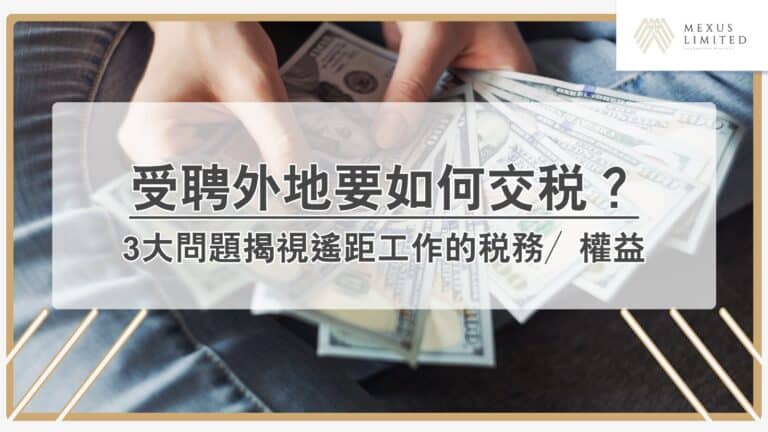Is a one-time spectrum utilization fee paid in advance by a taxpayer a deductible expense for taxable profits?
In 2022, the Court of Appeal upheld the Court of First Instance’s ruling that the one-time spectrum utilization fee paid in advance by a taxpayer is a capital expenditure and is not deductible from assessable profits, and dismissed the appellant’s appeal.
Background
China Mobile Hong Kong Company Limited v Commissioner of Inland Revenue
In the 1990s, a telecommunications company was a second generation (2G) personal communications licensee operating a certain amount of radio spectrum to provide services to its customers. Since 1996, the telecommunications company has been paying annual spectrum utilization fees for the use of a specific 2G radio band.
In 2009, the telco bid HK$494.7 million and HK$15.12 million for fourth generation (4G) and second generation (2G) rights respectively. Certain new 4G and additional 2G radio bands together with the relevant licenses were allocated to the Company for a period of 15 years and 12 years respectively.
The Company accounts for the one-time upfront payment of spectrum utilization fees on a straight-line amortization basis over the relevant license period. The expenses were deducted from the calculation of assessable profits in its 2009, 2010 and 2011 profits tax returns.
The Commissioner of Inland Revenue rejected the Company’s claim in its tax returns that the amortization of spectrum utilization fees was an expense of a capital nature. Therefore, under section 17(1)(c) of the IRO, the relevant expenses were not allowed to be deducted from the computation of assessable profits.
The Company filed several appeals, but both the Board of Review and the Court of First Instance upheld the Commissioner’s decision and dismissed the Company’s appeals.
Controversy
The main issue in this litigation is whether a distinction should be made between “right-to-use” fees and “use” spectrum fees, and whether such a distinction is decisive in determining the nature of the upfront lump sum spectrum utilization fee.
Also on appeal, the telco presented new arguments to the Court of Appeals in support of its appeal. The telecommunications company alleges that it pays annual and upfront fees for the use of spectrum and then resells the exact same spectrum to its customers for their use. Thus, the prepayment of spectrum usage fees is a direct cost of providing telecommunications services to customers and earning revenue, not capital in nature. (Please refer to the capital recycling test in the tax case)
Court of Appeal decision
The Court of Appeal upheld the Court of First Instance’s decision and dismissed Telecom’s appeal.
The Court of Appeal held that there is no single conclusive test to determine whether a fee is capital in nature. Therefore, the distinction between the “right to use” fee and the “use” of the spectrum is not determinative. Moreover, neither the Telecommunications Ordinance nor the relevant legislation makes such a distinction. Nor does the Telecommunications Ordinance impose an obligation on a telecommunications company to pay prepayment of spectrum utilization fees only when the spectrum is actually used by the taxpayer or its customers.
Further, the court held that the prepayment of SUF was intended to grant the telecommunications company the exclusive right to use the designated spectrum assigned to it for a period of 12 – 15 years. The prepaid spectrum utilization fee is a cost of acquiring or expanding the company’s business earnings structure, generating a fixed asset with a durable nature for the company to hold and use in its business. The spectrum is not consumed or used up when the telecommunications company provides services to its customers, but is kept in the form of an asset and used to generate revenue. Therefore, the spectrum was in fact a fixed asset of a capital nature and the capital cycle test was not applicable.
Finally, the court also noted that the company did not raise new arguments before appealing to the Board of Tax Appeals. The company also failed to present evidence to the Board of Tax Appeals for the Board to find facts. The appeal of the Board’s decision to the court could only be based on a question of law and the company could not present any further evidence in the court hearing the appeal.
Therefore, the Court of Appeals affirmed the decision and the Company’s appeal was unsuccessful.
Conclusion
In this appeal, the court reaffirmed several principles for determining the nature of capital. Although these principles have been established in the case law of the past, their application to specific facts is often controversial.
The telecommunications industry has made numerous representations to the Hong Kong government regarding the taxation of one-time license fees and similar fees. The industry hopes that the Hong Kong government will be in line with the practices of other similar jurisdictions and amend the Hong Kong legislation to extend the existing tax deductions to cover the above related fees/expenses in order to facilitate the further development of the innovation and technology sector and the telecommunications industry.
It is noteworthy that in this appeal case, the company did not present new arguments until the appeal was brought to the court, and the relevant arguments were not raised in the appeal before the Board of Review. However, as the Court of Appeal pointed out in this case, the Hong Kong courts will only answer questions of law based on the facts and evidence found by the Board of Review, and the Court of Appeal therefore dismissed the appeal in this case. Therefore, taxpayers should be careful and thorough in formulating their grounds of appeal, especially when appealing to the Board.

